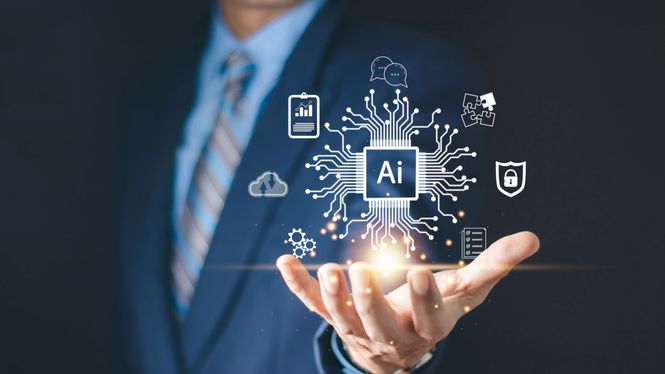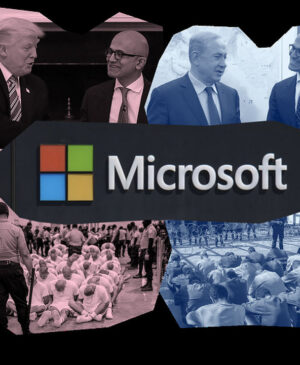TECH NEWS – In 2025, technology is on the brink of another evolutionary leap that will fundamentally reshape industries, the global economy, and everyday life. Artificial intelligence (AI) is becoming increasingly sophisticated, while the rise of quantum computing and edge computing is unlocking new possibilities. Meanwhile, experience-based technologies such as augmented reality (AR) and virtual reality (VR) are gaining greater prominence this year. These are just some of the trends predicted by Kingston Technology and the tech experts they consulted. But what do these developments mean for businesses and consumers?
AI in 2025 will offer increasingly refined decision-making and real-time personalization capabilities. *”We can expect an acceleration of digital transformation driven by AI, quantum computing, and experience-based technologies,”* says cybersecurity expert Rob May, founder of Ramsac, emphasizing that smart devices and decentralized applications will redefine how we live and work.
According to Rafael Bloom, one of the most significant advancements will be the personalization of AI-driven search, AI-powered data processing, and *agentic AI*, which could become mainstream in the same way ChatGPT did in recent years. Elena Carstoiu also highlights that Wi-Fi 7 is gaining traction, offering lower latency and faster speeds, particularly in the enterprise IoT market.
Kingston also underscores the growing role of robotics: from autonomous delivery robots to AI-powered manufacturing, the future of work will be shaped by intelligent machines that enhance efficiency, reduce costs, and improve safety.
The Expansion of Augmented Reality and Edge Computing
Kingston Technology experts predict that augmented reality will become increasingly integrated into everyday applications this year. The merging of AR with physical and digital experiences is set to redefine remote work, education, and commerce. From virtual shopping experiences to workplace training and healthcare applications, AR adoption is expected to expand across multiple industries.
The rise of edge computing will also be a key trend, as it enhances real-time data processing by reducing latency. This could revolutionize sectors like healthcare and the automotive industry (particularly self-driving vehicles), allowing devices to operate with less reliance on centralized cloud services.
Cybersecurity: The Evolution of Digital Protection
As AI and quantum computing continue to evolve, so too do the risks of cyberattacks. The *NIS2 and DORA regulations* are pushing companies to prioritize cybersecurity, extending protective measures across industries such as energy, transportation, banking, healthcare, and IT. *”These regulations are a wake-up call—perhaps arriving too late,”* warns Rafael Bloom, referring to the increasing frequency of attacks on digital infrastructure.
According to Advent IM Security, new security approaches and technologies—such as *Cybersecurity Mesh Architecture*, which improves interoperability and coordination among security products, and *smart contracts* for automated policy management—are helping businesses respond to threats more effectively. Cyber defense and data security expert David Clarke also points out that regulations like the AI Act, NIS2, and DORA could slow down certain industries due to compliance costs and uncertainties, particularly in supply chains.
Sustainability and Longer Device Lifespans
Experts say consumers are increasingly concerned not just about price but also sustainability, leading the tech industry to focus on more durable and repairable devices. Kingston experts believe that users are looking for value, which is why they tend to use their devices longer and opt for upgrades rather than replacements. They are more likely to support brands that provide regular and reliable repairs and updates. *”As one of the world’s largest memory manufacturers, Kingston plays a crucial role in this, as hardware longevity and e-waste reduction are hot topics today. Companies see SSD upgrades as the most effective solution to these challenges,”* adds Simon Besteman, Director of the Dutch Cloud Community. David Clarke also notes that the adoption of repairable and upgradeable devices may be encouraged by *right-to-repair* legislation, particularly in the EU.
Memory and Storage: The Driving Forces of Innovation
Experts agree that artificial intelligence, edge computing, and experience-based technologies all rely on *high-performance memory and storage solutions*. *”Ultra-fast memory and massive storage will power the innovations of 2025, enabling advancements in AI, AR/VR, real-time analytics, and edge computing,”* says Kate Sukhanova, founder of Expordite. In particular, *DDR5 memory and Gen 5 PCIe NVMe SSDs* are set to deliver unprecedented speed, supporting AI-driven workflows and reducing latency in cloud and edge applications. *”Storage is not just a passive component—it is the key to real-time interactions at every technological level,”* emphasizes Rafael Bloom.
What Else Does 2025 Have in Store?
While AI and quantum computing dominate headlines, experts also anticipate growth in green computing, Web3, extended reality (XR), and the continued expansion of *5G connectivity*. In this rapidly evolving tech landscape, companies must adapt to new regulations, sustainability requirements, and cybersecurity challenges to maintain a competitive edge. *”The digital world is changing fast, and only the companies that adapt will survive. We are on the brink of major technological breakthroughs, and 2025 will undoubtedly be a milestone in digital transformation,”* concludes Bernd Dombrowsky, Vice President of Sales and Marketing for Kingston Technology in the EMEA region.
















Leave a Reply